First aid skills are necessary for everyone. But if you don't have enough knowledge of how to help an injured person, you may even make it worse.
Bhaskar Health created a list of the most common mistakes that people make when they provide first aid.
First of all:
- Make sure you're not in danger.
- Check the person's pulse, breath, and check the pupils' size in light and dark, as they should become smaller when it is light.
Warning! If signs of life are absent, perform cardiopulmonary resuscitation immediately.
10. In case of severe bleeding:
The main mistake: applying a tourniquet immediately.
The first thing you should do is stop the bleeding. That's why you need to clamp the artery that is closest to the wound. Then you should apply a compressive bandage using sterile wipes or, if the wound is very deep, stuff it with wipes and fix a tampon with a bandage.
A tourniquet should be applied only in case of emergency. It's applied to the skin above the wound and as close to the wound as possible.
- Important: The tourniquet should be loosened for 10-15 minutes every hour and don't forget to press the artery. Then, the tourniquet should be tightened again, but not for more than 30 minutes.
9. In case of a nosebleed:
The main mistake: tilting the head back.
Make the person sit down, tip his or her head slightly forward to let the blood flow, and press the soft part of the nose with your fingers for no more than 10 minutes. The person should spit out all of the blood so as not to cause vomiting.
- Important: Do not clog the nose with cotton pads or tampons. This is necessary only if the bleeding doesn't stop in 15 minutes. Call a doctor immediately in this case.
8. In case of hypothermia:
The main mistakes: rubbing with snow, oil, or Vaseline, causing the body temperature to rise quickly.
First of all, a person should be placed in a warm room and the frozen body parts should be covered. Ensure that the person is wearing dry clothes and wrap him or her up in warm blankets. What is more, it's important to supply a person with sweet drinks and a hot meal.
- Important: Remember to never treat a person using alcohol. Alcohol expands the blood vessels and this causes heat loss.
7. In case of cardiac arrest:
The main mistake: performing the same actions for people of different ages.
An indirect heart massage for adults is performed with 2 hands: the base of the palm presses on the chest and the thumb of the hand should be facing the person's chin or legs. The same actions, but with the whole palm, should be performed for teenagers. And finally, to perform an indirect heart massage for a baby, you should press with 2 fingers.
- Important: You can perform an indirect heart massage only when the person is placed on a straight and sturdy surface.
6. In case of a burn:
The main mistake: removal of the clothes and piercing the burn bubbles.
To help a burning person, you should make them lie down and extinguish the flame using your clothes, only if the material is nonflammable. Then, call a doctor.
If there is a slight burn without significant tissue damage, it's important to rinse the skin with water for 20 minutes. Apply a sterile bandage and place ice or anything cold on top. When everything is done, you should call a doctor.
- Important: If a burn is severe, give the person some salt or mineral water.
5. Airway obstruction:
The main mistake: trying to use the Heimlich maneuver while saving an unconscious person.
If the person choked or fainted, lay them down on his or her back and sit on his or her hips. Then put your hands on the costal arch and press down. Then put the person on one side and remove the foreign object from his or her mouth with your fingers covered with a cloth.
If a child choked, put them on your left forearm (or right if you're left-handed) with their head down and give 3 back blows, and then take their legs and turn them upside down.
- Important: If you use the Heimlich maneuver for a pregnant woman, you should press a bit above the rib cage.
4. In case of dislocation:
The main mistake: trying to put a joint back.
We can find out the type of a dislocation only with the help of an X-ray procedure. That's why the only thing we can do is to not let the person move the injured part of the body. Don't bend or unbend it. You can use any flat and narrow objects to bind the injured part and the nearest joints, so as to immobilize them. Bandages should be used to fix a brace lengthwise, excluding the injured part. If there are no suitable objects, an arm should be fastened to the body and a leg should be pressed and tightened to the other leg.
- Important: Do not apply bandages too tightly. The circulation should stay normal.
3. In case of poisoning:
The main mistake: lack of water.
To wash out the stomach, a person should drink 10-20 cups of plain water. And after 1.5-2 cups, the water should spill out. To cause vomiting, press on the base of the tongue with 2 fingers. The procedure may be repeated several times before the water becomes clear.
- Important: Don't proceed with gastric lavage if a person is unconscious.
2. In case of a snakebite:
The main mistake: sucking a snakebite.
First, lay the person down so as not to allow the poison to spread quickly. Immobilize the limb: if a leg is injured, fasten it to another leg, if it's an arm, press it to the body. If the person is unconscious, perform cardiopulmonary resuscitation.
- Important: A tourniquet is useless in this case, as it doesn't prevent the poison from spreading. It also can cause necrosis.
1. In case of lower abdominal pain:
The main mistake: taking painkillers or antispasmodics.
We are often recommended to take painkillers to reduce lower abdominal pain. But doctors advise against this because if we eliminate the feeling of pain, we can miss the signs of fatally dangerous diseases, such as acute appendicitis, bowel obstruction, or a perforated ulcer.
- Important: If you feel acute pain in your abdomen, call a doctor immediately.
Remember that you should always call a doctor or a rescuer in case of an emergency.
Moreover, we recommend you to take first aid courses so you can always be prepared to provide life-saving assistance.


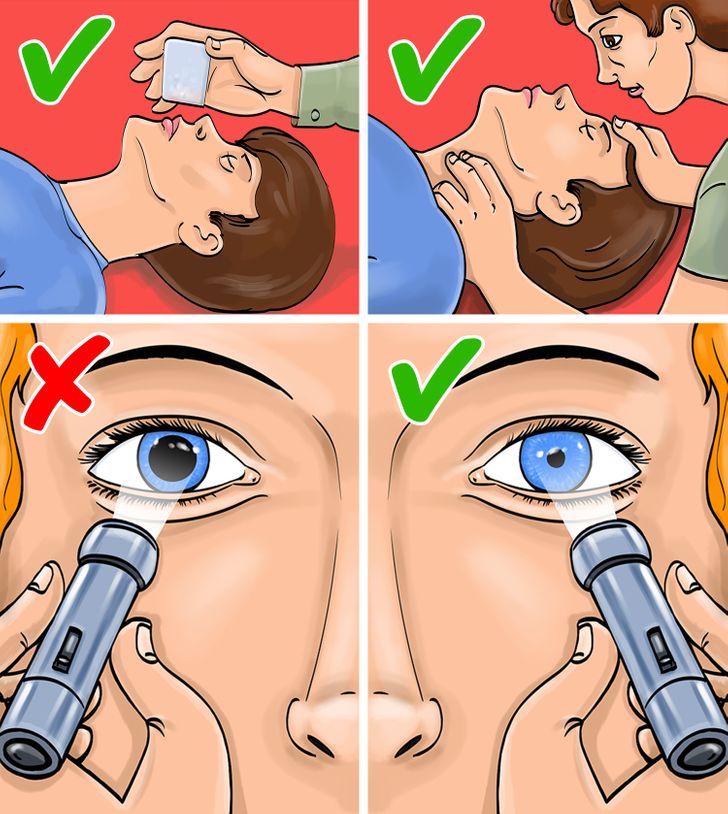
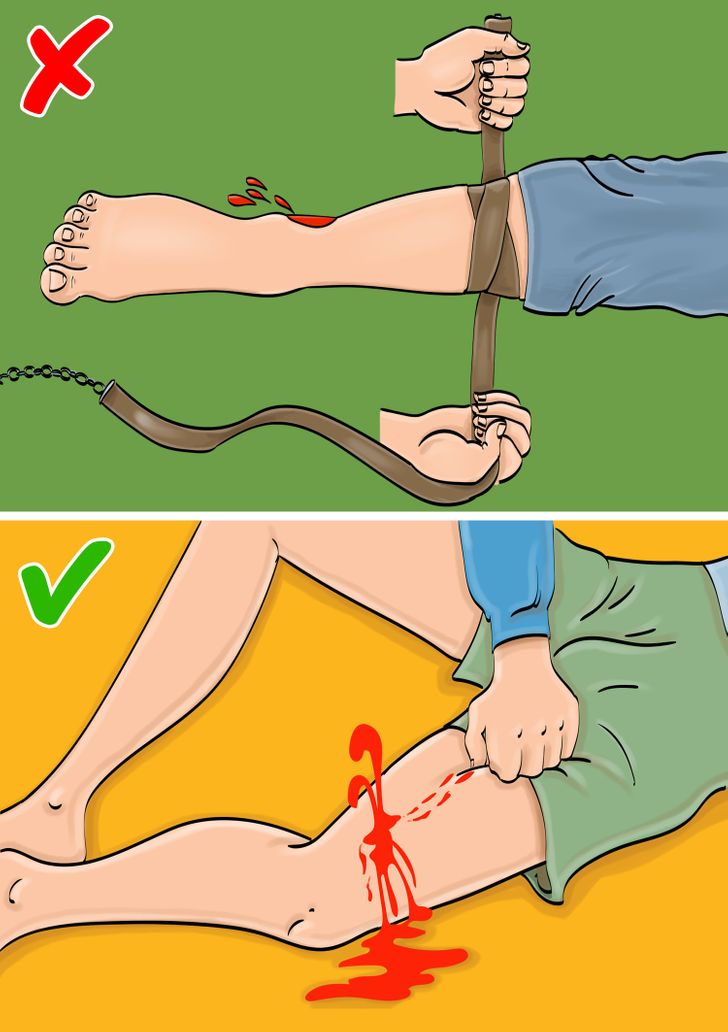
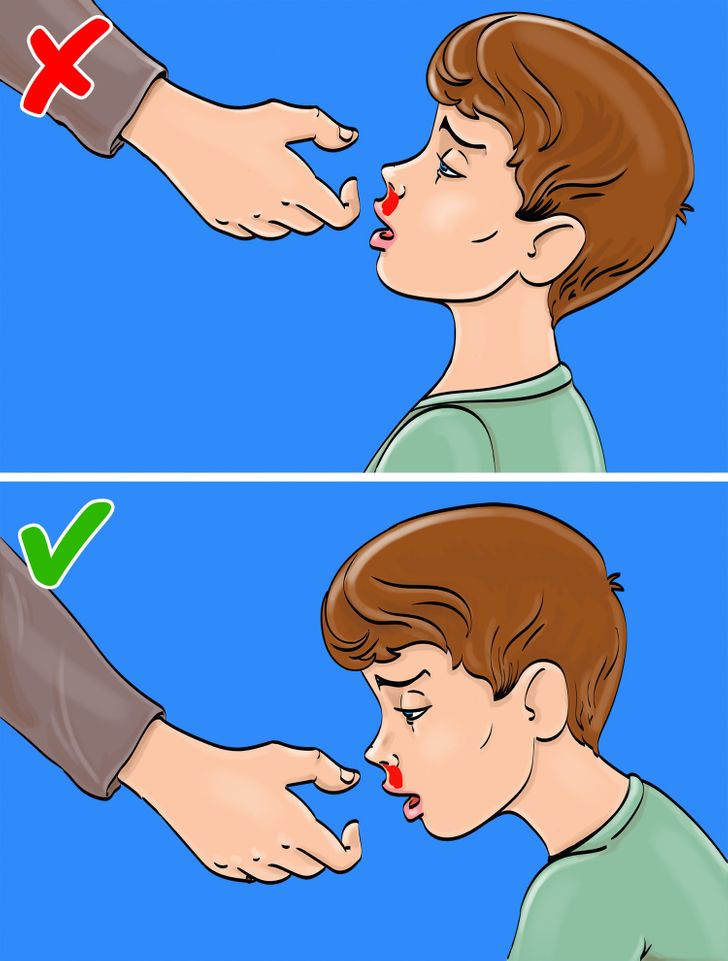
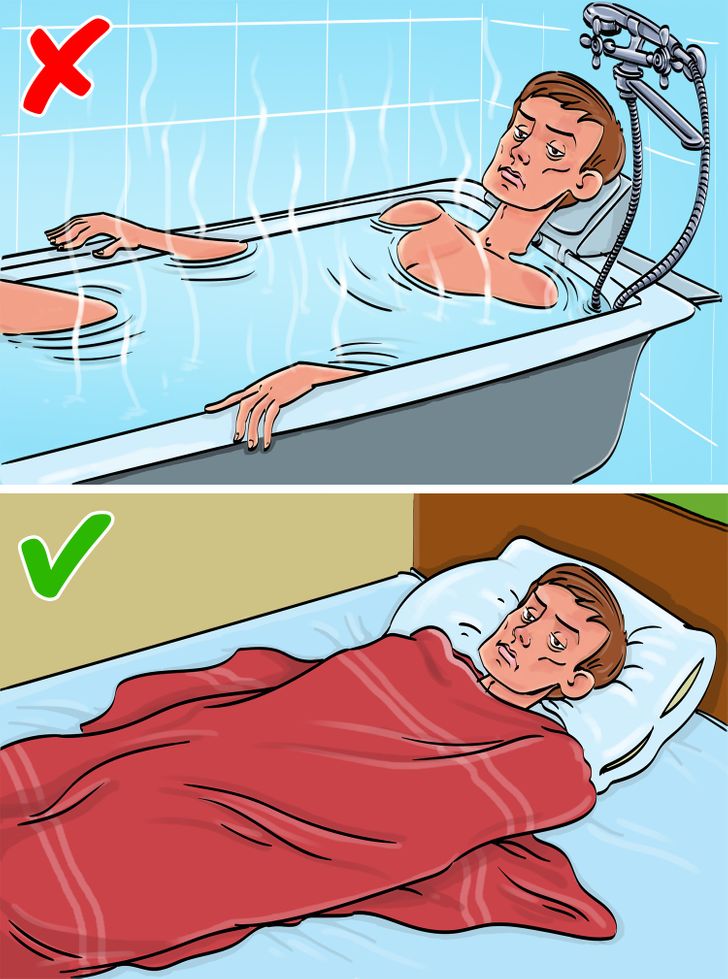
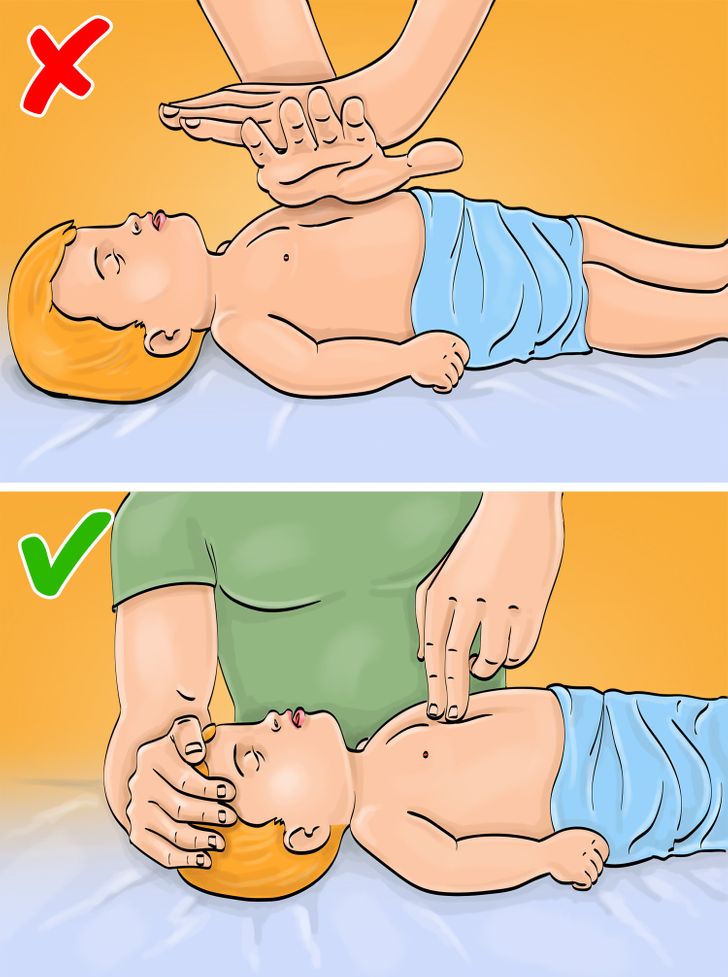
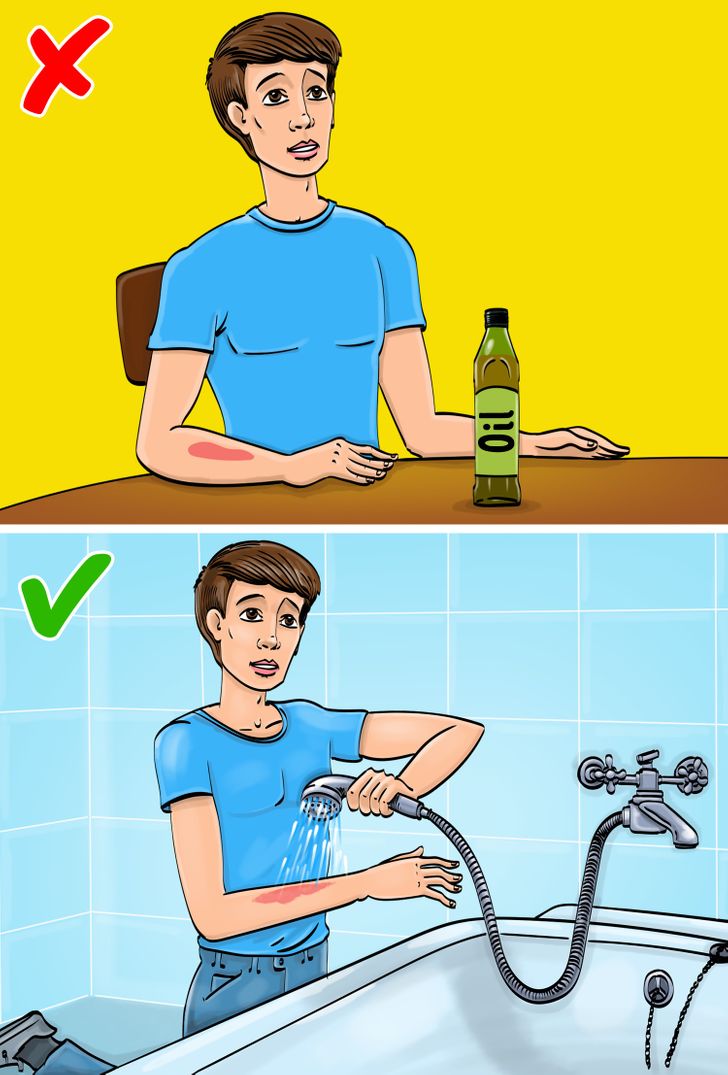
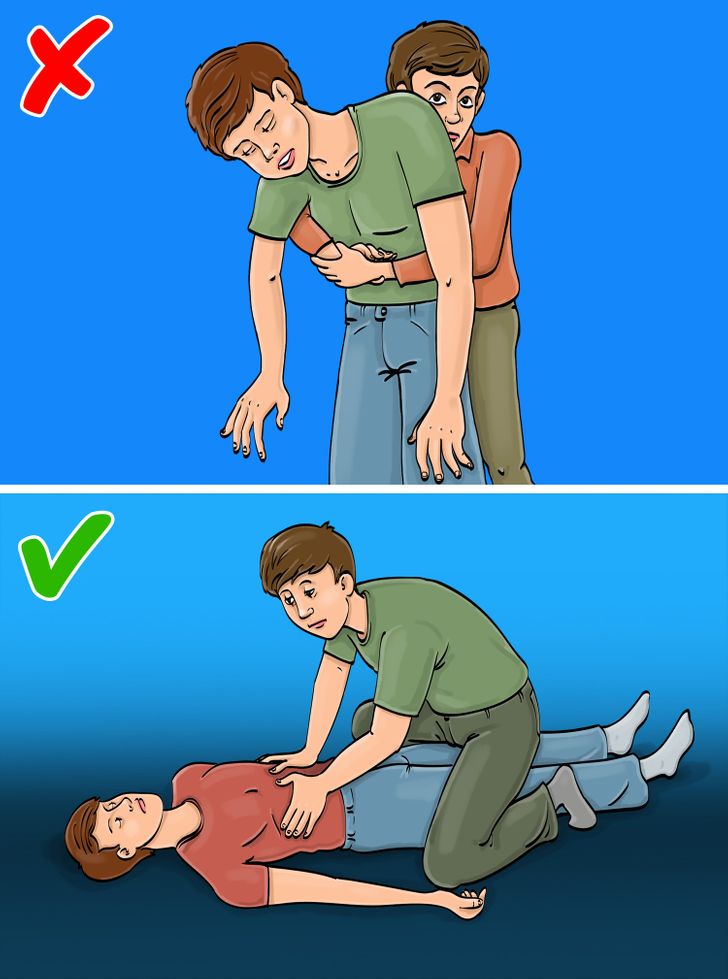
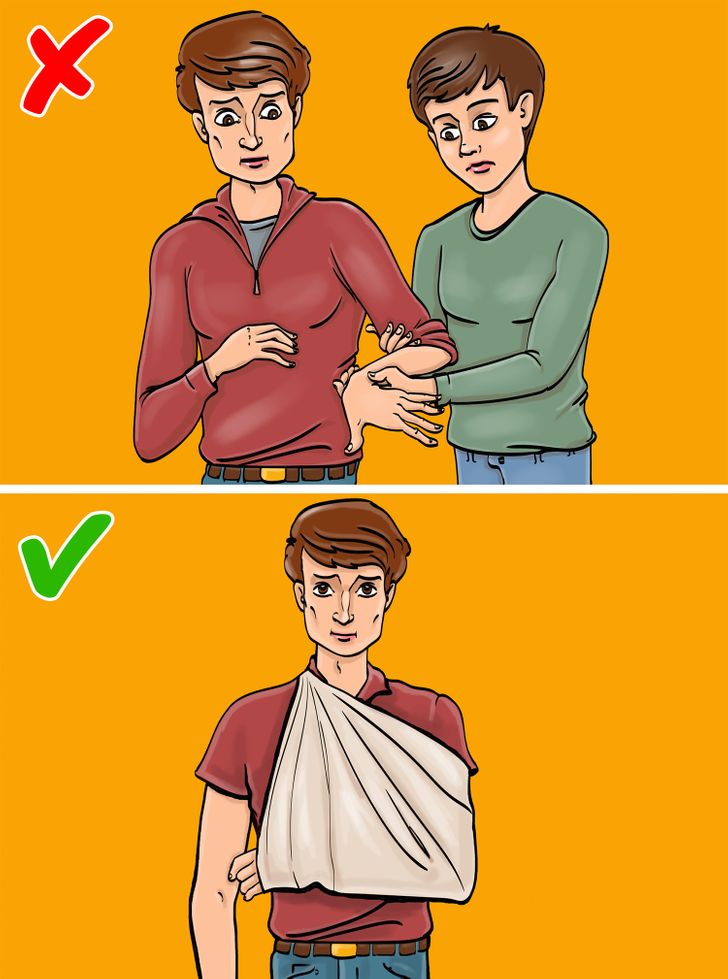
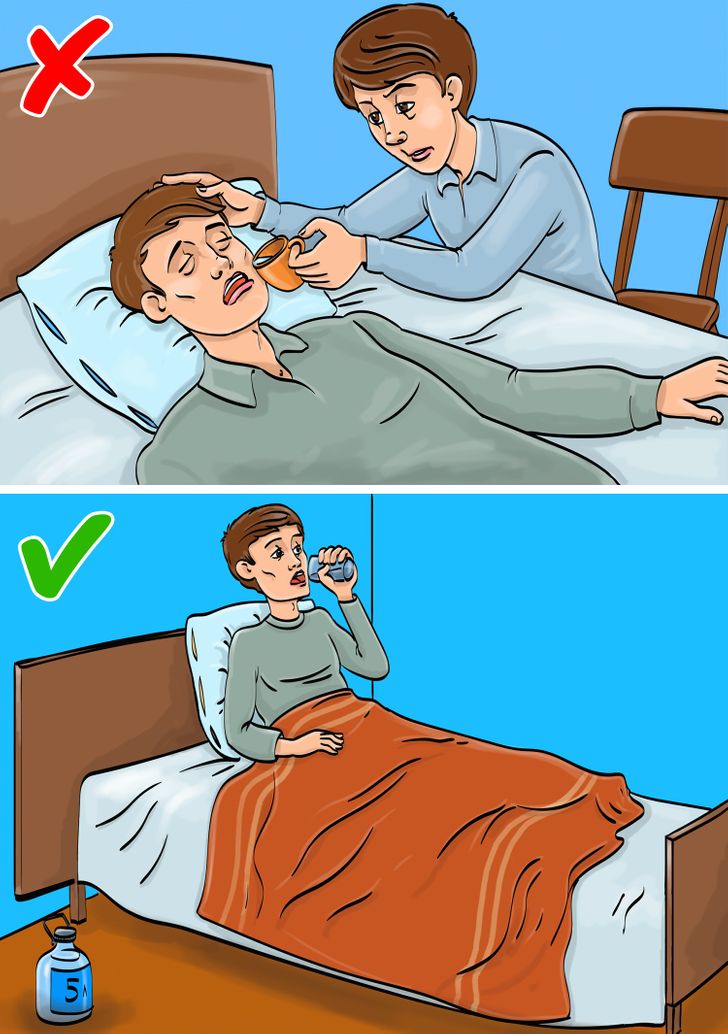
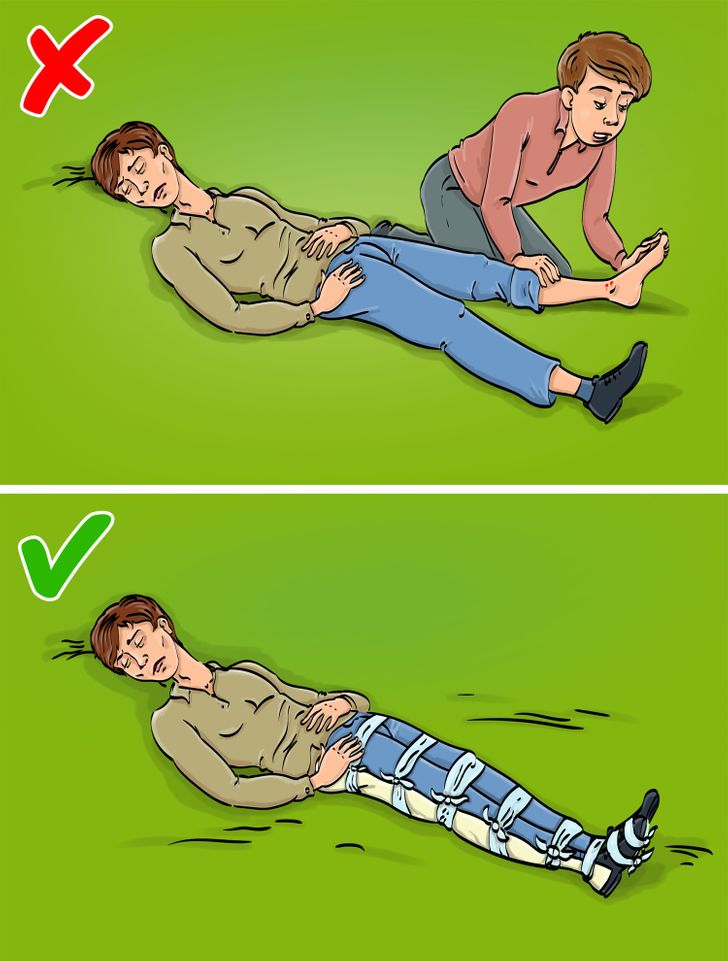
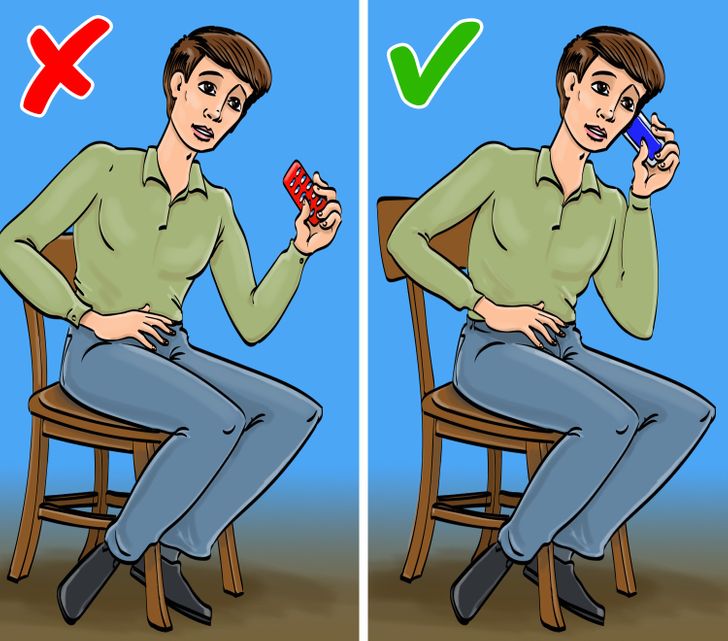
0 Comments